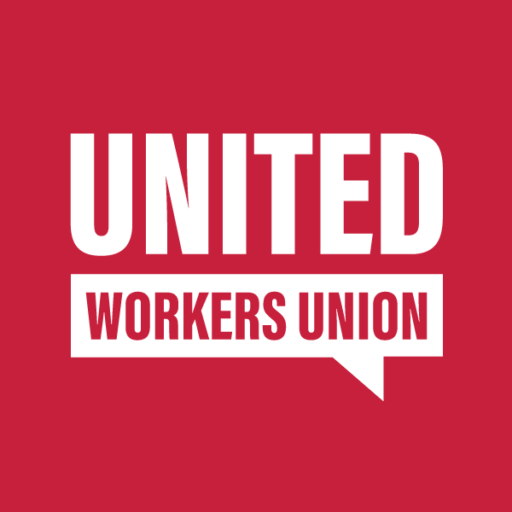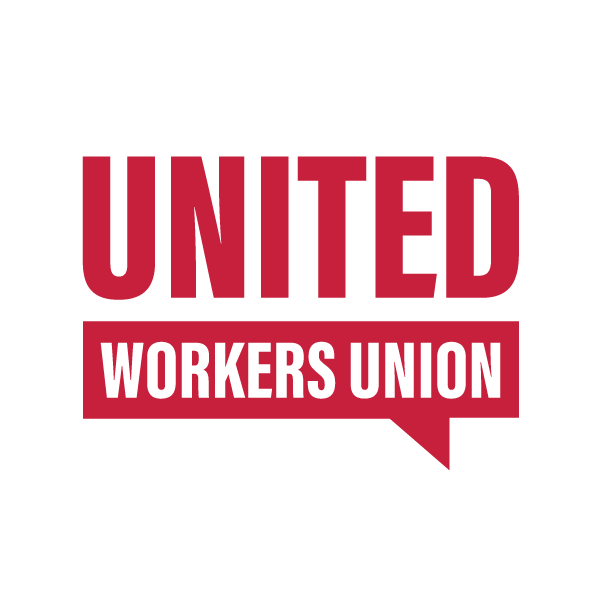A ground-breaking survey of more than 1500 disability support workers has revealed the shocking physical risk and daily threat of violence disability workers are facing turning up to their jobs.
Released as the Royal Commission held its final hearings of its three-year-long inquiry, the major national survey of workers exposes harrowing accounts of disability support workers working in the National Disability Insurance Scheme, including being left with scars from knife attacks, being spat at and bitten, and hair being ripped out –largely as a result of chronic understaffing rife in the sector.
The responses recorded in the United Workers Union survey identify a disability workforce crisis with serious workplace issues.
The survey shows disability support workers are passionate about providing high-quality and safe supports to people with a disability, but they also demand the right of every worker to a safe workplace. Situations concerning workers are largely based on times when people with disability, through no fault of their own, face understaffing or insufficient support from management staffing decisions that exacerbate behaviours of concern and threaten the safety of people with a disability and workers alike.
Facing at-times impossible working conditions, three quarters of workers say they think about leaving the sector some or all the time, and one-in-five workers say they are planning to leave the sector, many within a year.
Issues raised in the survey by United Workers Union include 38 per cent of workers experiencing violence in the workplace, 84 per cent experiencing the impacts of understaffing and over 30 per cent reporting regular unpaid work.
The survey responses lift the lid on the role of disability support workers in the disability sector, revealing a perfect storm of too few workers, insecure work and poor management practices, creating unsafe conditions for the people supported and workers alike:
- Among workers planning to leave the sector, the top reasons given are workplace stress (56 per cent), feeling undervalued (55 per cent) and staff shortages (53 per cent).
- Over 50 per cent of disability support workers are worried about their job security, and 27 per cent are working two or more jobs.
- Of the 34 per cent of workers who report working unpaid hours, 7 per cent work more than 10 hours a week unpaid on duties such as incident reports, staff handovers or needing to stay behind to support clients.
Despite the many challenges they face, workers express a high degree of satisfaction in their work, but spell out serious impacts of understaffing including shifts extended without notice, inconsistent staffing, staff burn out and people with a disability left upset, anxious, unsupported, feeling abandoned and at risk.
One worker wrote: “People are supported at negligent levels – it’s dangerous for them and for the staff supporting them.”
“The stories workers like me have reported speak to the need for fundamental reforms to the way workers are treated in supported living environments,” Delma Panhuyzen, a disability support worker of more than 10 years said today.
“This survey reveals people with a disability and workers alike bear the burden of understaffing, creating a disastrous situation that undermines everyone’s safety.”
Mel Coad, United Workers Union Disability Co-ordinator, said the survey shines a light on the workforce crisis in disability support, a crisis that has been ignored by the Royal Commission over its three-year inquiry.
“The incidents disability support workers face are horrifying, and it’s a direct consequence of understaffing, chronically low pay and a system that relies on workers taking on unpaid hours,” she said.
“This survey shows that every day disability workers endeavour to provide safe quality support to people with disability in an environment of poor workforce conditions.
“We had hoped the Royal Commission would address this as workers are key to ensuring people with a disability do not face violence, abuse, neglect, and exploitation.
“It’s telling that when workers file occupational health and safety reports nearly half of workers say their complaints aren’t acted on in a timely fashion, and others speak of being punished or bullied if they make incident reports.”
Accounts from workers in the survey:
“The quality we offer to our clients is limited, staff shortages impact the client in every way. The impact to staff is very stressful and the pressure is huge. [I was] physically assaulted every shift by one client. This lasted for over 12 months.” – Disability support worker, WA
“I was chased up the stairs by a client with a knife and locked myself in the office and the client was trying to kick the door. By the time the police arrived she had damaged the door so bad they had to jemmy the door open with a crowbar. I have no doubt whatsoever that she would have stabbed me.” – Disability support worker, SA
“In the past I have received significant physical violence from clients including being punched, grabbed, having hair pulled out in clumps, being scratched and poked in the eye. I have sustained a permanent shoulder injury as a result. Most of the times I have been a victim of violence I haven’t received any follow up from management despite my incident reports.” – Disability support worker, SA
“In a previous role … I was concerned for both my safety and the workers in the house after several were injured by a client.” – Disability support worker, WA
“There is a huge impact when clients don’t get the care they need due to staff shortages. Staff burn out quickly, it’s horrid. [There is] spitting, hitting, threats, property damage, assault, a car written off. Injuries at work are constant.” – Disability support worker, SA
“[The impact of understaffing is] high client anxiety and behaviours. For me [it’s] having to stay back extra hours when I’m too tired to stay on and being asked and feeling pressured to work hours that I’m not prepared to work.” – Disability support worker, WA
“[The impact of understaffing is] stress, anxiety, additional work loads, care concerns, critical incidents, behaviour incidents, safety, lack of equipment and training to use equipment, putting yourself and clients at risk (eg two-person support in manual handling plan, only one staff rostered on) – staff putting their body on the line.” – Disability support worker, SA
“Staff shortages mean that clients sometimes can’t get the services that they need. Staff get burnt out working longer hours. The staff become unreliable as shifts get shuffled around. The clients feel helpless and can have physical and emotional and mental decline.” – Disability support worker, WA
ENDS
Media Contact: 1300 898 633, [email protected]

